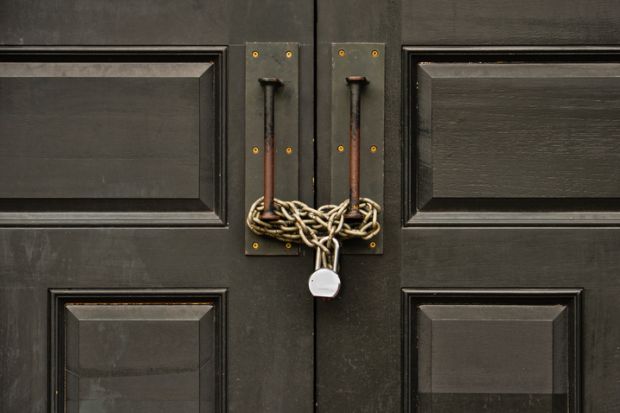The University of Essex has made public apologies to a female academic disinvited from presenting a seminar, and another disinvited from a Holocaust Memorial Week event at the institution and then reinstated, after objections to their views on gender.
The university’s vice-chancellor, Anthony Forster, made the “open apology” after receiving the report of an external review he commissioned on the cases.
“The report makes clear that we have made serious mistakes and we need to do our very best to learn from these and to ensure they are not repeated,” he writes in a blog published on the university’s website.
Essex’s apology comes at an important political moment, with the Westminster government having confirmed plans to introduce legislation on campus free speech in England.
On 5 December 2019, Essex’s Centre for Criminology cancelled a seminar at which Jo Phoenix, chair in criminology at the Open University, had been due to speak on the subject of “Trans rights, imprisonment and the criminal justice system”, according to the review, by barrister Akua Reindorf.
“On the day of the seminar, complaints were made that Prof Phoenix was a ‘transphobe’ who was likely to engage in ‘hate speech’,” the review says. “There were reports that people felt unsafe and threatened by the prospect of her appearing on campus.”
The seminar was cancelled over security concerns, on the basis that it would be rearranged. “At a later meeting of the department of sociology, however, it was decided by vote to rescind the invitation and to not invite Prof Phoenix to a future seminar,” the review says. “An apology was made for the hurt caused to the trans community.”
The review says that while the decision to cancel the seminar on security grounds was “unavoidable in the circumstances”, it “could have been averted by proper understanding and timely use of the university’s external speaker notification procedure”.
It describes the cancellation of the seminar as amounting to “a breach of Prof Phoenix’s right to freedom of expression and the associated legal duties to which the university was subject”, with the subsequent decision “to exclude and blacklist” her also being “unlawful”.
Responding on Twitter to the university’s apology, Professor Phoenix said the institution, before the cancellation of the seminar, had “failed to take immediate action regarding a violent and profane flyer that was targeted at me (with SHUT THE F**K UP TERF text, a visual of a gun pointed at the reader and a list of examples of my alleged transphobia)”. The review agrees that the “violent flyer” should have been “the subject of a timely disciplinary investigation”.
And the review also says that the “decision taken in relation to Prof Phoenix may contribute to indirect sex discrimination against women at the university, on the basis that more women than men tend to hold (and publicly express) gender critical views”.
In the second case, Rosa Freedman, professor of law, conflict and global development at the University of Reading, was on the panel for a round-table discussion on “The state of antisemitism today” as part of the Holocaust Memorial Week on 30 January 2020.
After complaints about “hate speech”, “concerns about her views on sex and gender were then raised and discussed internally” and a “decision was made not to send her a formal invitation”, the review says.
Following a public row, she was reinstated on the panel. “If the invitation had not been reinstated she would have been subjected to an interference with her right to freedom of expression,” the review says.
The review recommends that the university make open apologies to both academics and institute a series of changes to its processes for handling bookings of external speakers.
It also recommends that the university consider the “relative benefits and disbenefits” of its relationship with LGBT rights group Stonewall. “In particular, it should consider that this relationship appears to have given university members the impression that gender critical academics can legitimately be excluded from the institution,” the review says.
Professor Phoenix said on Twitter: “I welcome that apology and welcome the approach taken – even if it took EIGHTEEN MONTHS to complete.”
The report is “very clear” on “the fact that disinviting a speaker is outwith [the] current legislative framework”, she added.
Professor Forster writes that the university has responsibilities including “upholding academic freedom and freedom of speech within the law, legal duties in relation to equality, diversity and inclusion and a commitment to our university values”, and the “relationship between these responsibilities comes to the fore in moments of contestation”.
He adds that the two cases “raise very serious issues about how we deliver on our legal obligations and our values”.
Register to continue
Why register?
- Registration is free and only takes a moment
- Once registered, you can read 3 articles a month
- Sign up for our newsletter
Subscribe
Or subscribe for unlimited access to:
- Unlimited access to news, views, insights & reviews
- Digital editions
- Digital access to THE’s university and college rankings analysis
Already registered or a current subscriber? Login








